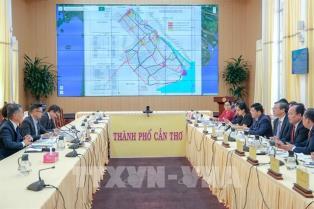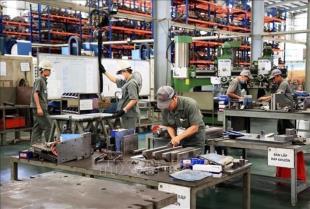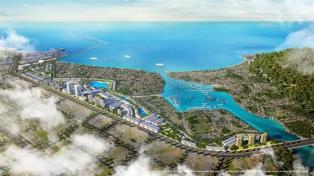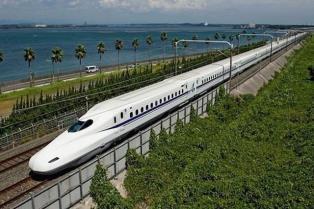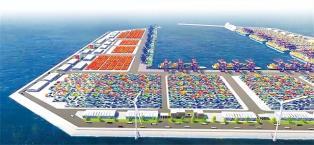After merging with Kon Tum, Quảng Ngãi Province is entering a new phase of growth, calling on Quảng Ngãi-born entrepreneurs in HCM City and beyond to invest in their hometown or share ideas to unlock its coastal, tourism, and technology potential.
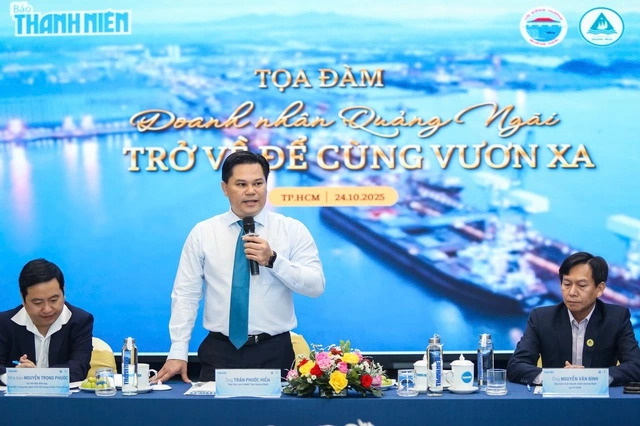
HCM CITY — After merging with Kon Tum, Quảng Ngãi Province is entering a new phase of growth, calling on Quảng Ngãi-born entrepreneurs in HCM City and beyond to invest in their hometown or share ideas to unlock its coastal, tourism, and technology potential.
Speaking at a seminar co-organised by the Quảng Ngãi Entrepreneurs Club in HCM City and Thanh Niên newspaper in HCM City on October 24, Trần Phước Hiền, Vice Chairman of the provincial People’s Committee, said the new Quảng Ngãi Province has enormous potential for developing the marine economy.
The Dung Quất Industrial Zone is set to host Việt Nam’s first national petrochemical and refinery centre, while Lý Sơn Island has been designated a national marine tourism and aquaculture hub, according to Hiền.
In the west, the Măng Đen national tourism site surrounded by nearly one million hectares of forest offers strong prospects for forestry, eco-services, and carbon credit development.
“After the merger with Kon Tum, Quảng Ngãi has emerged as one of the country’s most dynamic provinces,” Hiền said. “In the first nine months of 2025, its GRDP grew by 10.15 per cent year-on-year, ranking first in the south-central coastal and Central Highlands regions and fifth nationwide. This is an advantage but also a challenge as we strive to sustain double-digit growth.”
To fully leverage its advantages, the province is prioritising investment in energy, education, healthcare, and particularly in science, technology, and digital transformation. These are areas where Quảng Ngãi remains underdeveloped but holds great promise, according to Hiền.
He stressed that the province was eager to listen to entrepreneurs’ views and proposals. “We know many returning investors still face difficulties. That is why Quảng Ngãi is reviewing its approaches and is determined to address challenges proactively through open dialogue and joint efforts.”
“Our advantages remain only potential. We hope to attract talented Quảng Ngãi natives back to serve their province and welcome innovative ideas from entrepreneurs and the younger generation to help the province move forward,” he added.

As a Quảng Ngãi native and senior advisor to the Vietnam Textile and Apparel Association, Lê Quốc Ân, who has helped attract nearly ten textile companies to set up factories in the province, agreed that tourism should become a key economic driver.
He said Lý Sơn “deserves to be an international, not just national, destination” thanks to its stunning scenery but must overcome existing limitations to realise its full potential.
Đỗ Xuân Quang, deputy CEO of VietjetAir, also highlighted Quảng Ngãi’s tourism potential but noted a lack of accommodation infrastructure.
“I left Quảng Ngãi 40 years ago. The most painful thing is that accommodation facilities have hardly changed,” he said. “Ten years ago, the tallest hotel had 12 floors and today it is still the same. There is not even a three-star hotel, let alone a five-star one, while neighbouring provinces are developing rapidly.”
Quang added that Quảng Ngãi enjoyed many advantages such as a deep-water port, an airport, expressways, and railways, yet investors still faced regulatory barriers.
“For example, we wanted to build an 18-storey, 4-star hotel to meet accommodation demand, but the existing zoning plan doesn’t permit such height because it was issued too long ago,” he explained.
“It’s urgent that the province update its master plan to give investors a clear legal framework for development.”
Trần Anh Tuấn, vice chairman and CEO of AUVS Vietnam Network, shared his journey of returning to Quảng Ngãi in 1996 after graduating from HCM City University of Technology to contribute to local development.
In 2020, he moved back to HCM City to work in science and technology, running a high-tech drone research and manufacturing company exporting globally and helping to establish a national drone network.
“Quảng Ngãi people are known for their perseverance and resilience,” Tuấn said. “They are also skilled in science and technology. If the province can unite businesspeople from afar with the collective efforts of local authorities and its existing resources, it will make a strong contribution to local development.” — VNS

